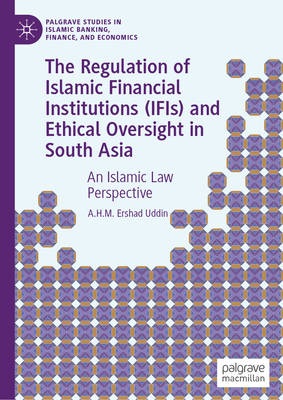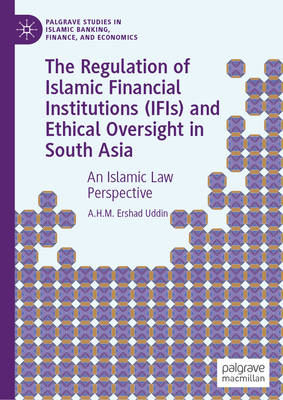
Bedankt voor het vertrouwen het afgelopen jaar! Om jou te bedanken bieden we GRATIS verzending (in België) aan op alles gedurende de hele maand januari.
- Afhalen na 1 uur in een winkel met voorraad
- In januari gratis thuislevering in België
- Ruim aanbod met 7 miljoen producten
Bedankt voor het vertrouwen het afgelopen jaar! Om jou te bedanken bieden we GRATIS verzending (in België) aan op alles gedurende de hele maand januari.
- Afhalen na 1 uur in een winkel met voorraad
- In januari gratis thuislevering in België
- Ruim aanbod met 7 miljoen producten
Zoeken
The Regulation of Islamic Financial Institutions (Ifis) and Ethical Oversight in South Asia
An Islamic Law Perspective
A H M Ershad Uddin
€ 96,45
+ 192 punten
Omschrijving
This book offers a comprehensive examination of Islamic finance as a legal-ethical system rooted in Sharīʿah, highlighting its regulatory, ethical, and institutional dimensions. It critiques prevailing models of Islamic banking for prioritizing technical compliance over justice, accountability, and public welfare, and advances a maqāṣid-driven vision of regulation. Drawing on comparative case studies from Pakistan, Bangladesh, India, Afghanistan, Sri Lanka, and the Maldives, the book identifies regional challenges while showcasing innovative practices. It introduces the concept of ḥisbah-based oversight and proposes a South Asian Ethical Finance Council as a framework for aligning financial institutions with Islamic legal and ethical standards. Bridging theory and practice, the study integrates insights from Islamic law, finance, and governance to address pressing regulatory and ethical questions. It is an essential resource for scholars, policymakers, and practitioners of Islamic finance, financial regulation, and comparative law.
Specificaties
Betrokkenen
- Auteur(s):
- Uitgeverij:
Inhoud
- Aantal bladzijden:
- 262
- Taal:
- Engels
- Reeks:
Eigenschappen
- Productcode (EAN):
- 9783032098276
- Verschijningsdatum:
- 1/01/2026
- Uitvoering:
- Hardcover
- Formaat:
- Genaaid
- Afmetingen:
- 148 mm x 210 mm
- Gewicht:
- 455 g

Alleen bij Standaard Boekhandel
+ 192 punten op je klantenkaart van Standaard Boekhandel
Beoordelingen
We publiceren alleen reviews die voldoen aan de voorwaarden voor reviews. Bekijk onze voorwaarden voor reviews.









